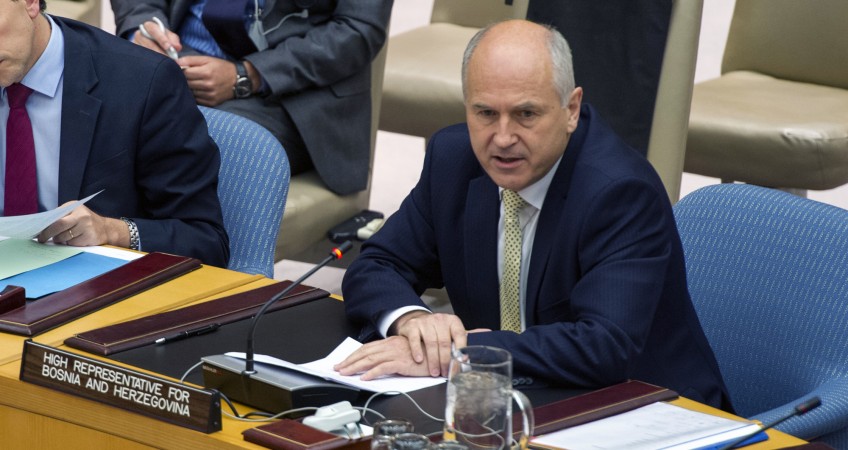In light of the internal challenges that Bosnia and Herzegovina still faces, the International Community should retain all instruments at its disposal, including the EU military force, in order to maintain the country’s stability, the High Representative, Valentin Inzko, stated in his address before the UN Security Council.
The High Representative presented his 52nd regular report on implementation of the Peace Agreement in Bosnia and Herzegovina. He welcomed the Security Council’s decision to extend its authorization of the EU military presence in Bosnia and Herzegovina.
The High Representative stated that some positive steps have been recognized in the past six months since his last report. Work is under way to complete the European Commission’s questionnaire. In September, Bosnia and Herzegovina joined the Transport Community Treaty with the EU, along with five other countries of the region, which will result in better conditions for infrastructure projects.
However, Inzko added that he is inclined to agree with the recent assessment by the EU foreign ministers that “a divisive rhetoric rooted in the past, and an early electoral agenda, have slowed the pace of reforms and affected the political climate.” The High Representative further stressed the need for ensuring a smooth organisation of the 2018 general elections, as well as the implementation of election results. He urged parties and relevant institutions to work towards this goal.
The High Representative said that there has been a “general long-term trend of diminishing regard for the rule of law by those in authority.” At the same time, the citizens continue to be confronted by “corruption in the political system, in the large public sector, and in the provision of basic services.” The High Representative in particular drew attention to statements and actions of the RS authorities that challenge the authority of state-level institutions, including the judiciary.
Noting that “the Dayton Peace Agreement defines Bosnia and Herzegovina as a state governed by ‘rule of law,’” he said the International Community must “re-engage and reinvigorate efforts to buttress the rule of law, including through stronger anti-corruption efforts.”
Finally, Inzko described to the Security Council the “determined resistance from a group of vocal students and other citizens of all nationalities” last year when politicians proposed to segregate Bosniak and Croat pupils at a high school in Jajce. “This example reminds us that there is a desire among citizens for social and institutional integration and for European standards to be applied,” he said, adding that the International Community must continue to speak out in support of citizens “working to improve their own country”.
The full text of the High Representative’s address to the Security Council can be accessed at www.ohr.int.














